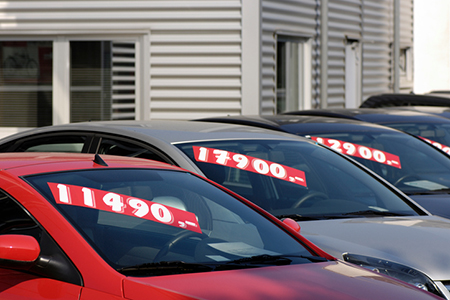Buying a used car can be a great deal. Or it can be buying someone else’s problems.
One of the main advantages of buying a used car is that it’s cheaper than a new car. Cars depreciate quickly. The typical midsize sedan loses more than $7,400 of its value in its first year, then loses less than that in the next three years combined, according to Edmunds.com.
But used cars don’t come without problems. Here are a few to look out for when shopping for one, starting with the most basic of reasons:
Mechanical problems
Having a mechanic check out a car before you buy it is money well spent. A test drive may allow you to notice some problems — such as it steering too hard to one side — but a mechanic will be able to look at problems under the hood and get better insight.
Odometer rollbacks
Making a car look like it has less mileage by rolling back the odometer is illegal and is protected against through odometer disclosure statements required by the federal government when buying from a company that sells used cars.
The National Motor Vehicle Administration has a list of approved companies that sell car title information, including if the odometer is accurate.
Warranties
Some car dealers sell used cars “as is.” That’s legal in some states, as long as it is clearly disclosed. But if the car is still under warranty from the manufacturer, you’re entitled to that coverage. Check with your local or state consumer protection agency for your warranty rights.
If a used car is sold “as is” and requires repairs to pass a state inspection, then you should be able to get your money back and return the car for a refund.
Bait and switch
This is most common with new cars to get shoppers in the door, but some car dealers will do it with used cars too.
A popular used car is advertised at a low price, but when you get to the dealership, it’s no longer available and the salesman tries to sell you a similar car. This is false advertising and you should walk away.
Unlicensed dealer
Used car dealers are supposed to have a license to operate a business. If your dealer is selling cars in a parking lot, on the street or online, it may be a shady deal.
The dealer may have collected a few cars without warranties that don’t run well, and is trying to sell them fast.
Ask to see the dealer’s business license. If you’re buying online, check if the site offers buyer protection and make sure you can see the car in person and have it checked out by a mechanic before buying.
I hope you found this information helpful. Contact me for your real estate needs today!











